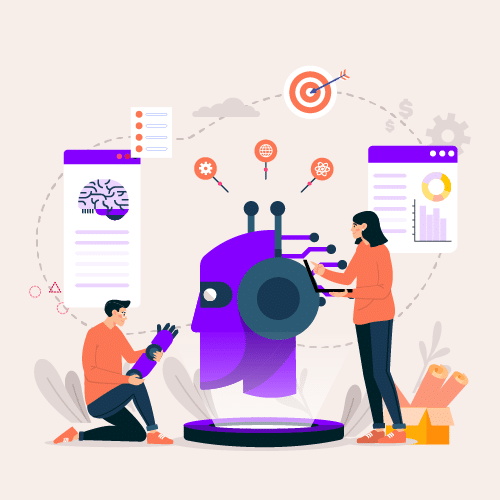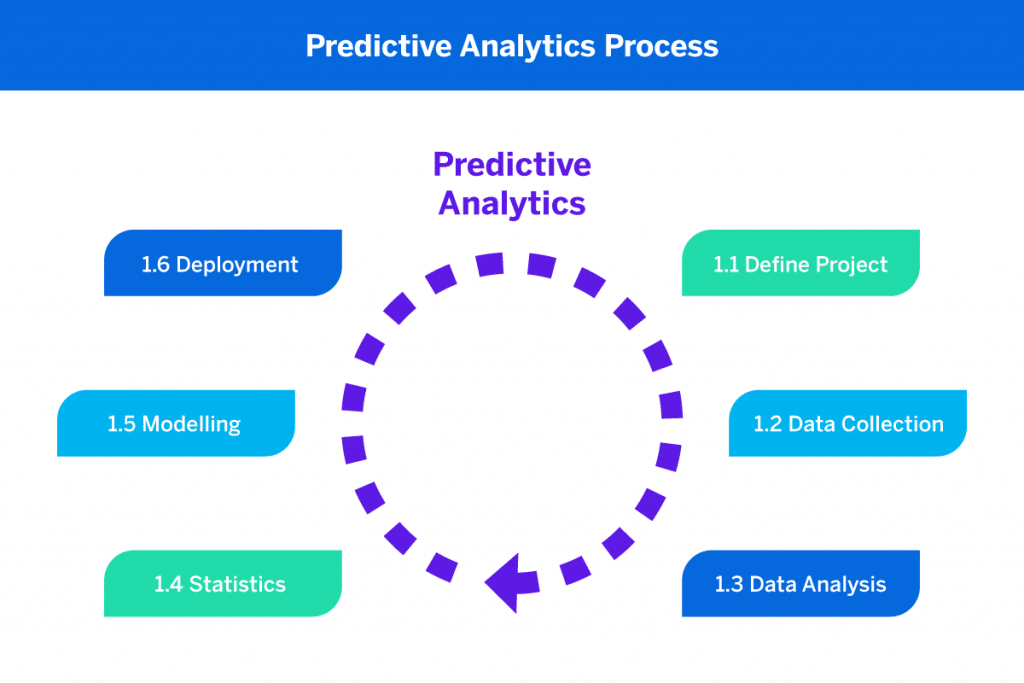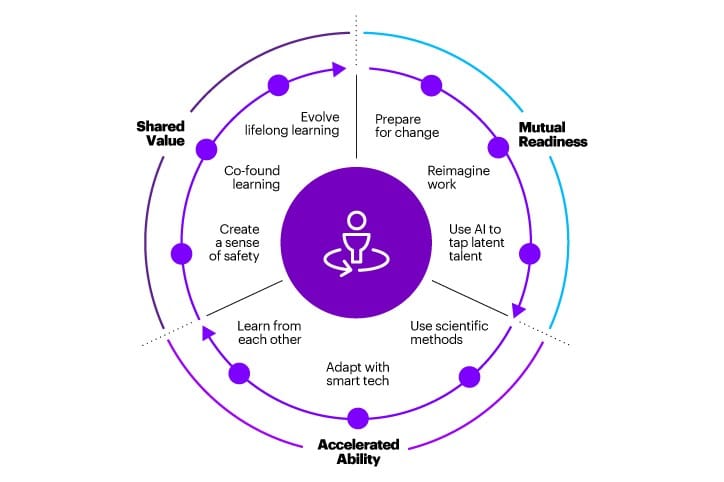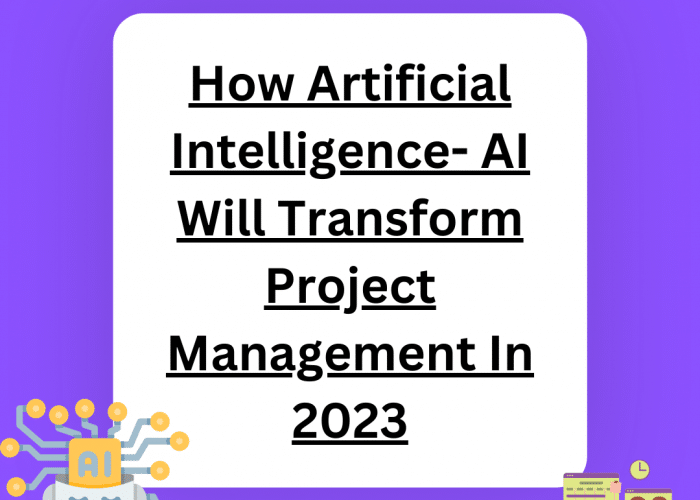
Artificial intelligence (AI) has been a buzzword in the technology industry for a while now. With advancements in machine learning and natural language processing, AI has become an integral part of various industries, including project management. ✔️
Project management is a complex process that requires effective communication, collaboration, and decision-making skills. AI has the potential to transform project management by automating repetitive tasks, providing valuable insights and predictions, and improving team communication and productivity. 🔽
In this blog, we will explore how AI is changing project management and what the future of project management with AI looks like.
Facts About Project Management For Project Manager
Some recent facts about project management:
- According to the Project Management Institute (PMI), 71% of organizations use Agile approaches for their projects, up from 56% in 2018.
- A survey by Wellingtone revealed that only 22% of organizations fully understand the value of project management.
- The global project management software market is expected to reach $6.68 billion by 2026, growing at a compound annual growth rate (CAGR) of 10.6% from 2021 to 2026.
- A report by the Standish Group found that only 36% of projects are completed on time, 44% are completed within budget, and 50% meet the original goals and objectives.
- The PMI predicts that there will be 87.7 million project management roles by 2027, with an estimated $10 trillion spent on project management-related activities globally.
- A study by the Harvard Business Review found that companies that use project management tools and techniques can complete their projects 27% faster and with fewer resources than those that don’t.
These facts show that project management is a vital aspect of many organizations and that the industry is evolving rapidly with the adoption of new technologies and methodologies.
Ways In Which AI Systems Will Transform Project Management
Automation of repetitive tasks
AI can ensure automation of repetitive tasks in project management through the use of Robotic Process Automation (RPA) and other similar technologies.
RPA involves using software robots to automate manual and repetitive tasks such as data entry, file transfers, and report generation. These robots are programmed to mimic human actions and can perform tasks much faster and more accurately than humans.

For example, in a construction project, RPA can be used to automate the process of updating project schedules based on progress reports from the field. Project managers must use this to save time & effort, who would otherwise have to manually update the schedules.
Fact: According to a report by McKinsey, up to 45% of activities in various industries can be automated using existing technologies, including RPA. This suggests that there is significant potential for AI to automate repetitive tasks in project management and other areas. 🔀
In task management, automation can also help to reduce errors and improve data accuracy.
For instance, AI-powered tools can be used to automatically populate project management software with data from different sources, reducing the risk of manual errors and improving the accuracy of every project data. 💯
By automating repetitive tasks, AI can free up project managers to focus on higher-value activities such as decision-making, planning, and risk management. This can lead to increased efficiency, productivity, and better project outcomes.
Predictive analytics
Predictive analytics through AI can transform project management by providing valuable insights and recommendations to project managers. Predictive analytics involves using machine learning algorithms to analyze historical data and identify patterns and trends that can be used to make predictions about the future.

For example, predictive analytics can be used to forecast project completion dates and identify potential delays before they occur. This can help project heads to proactively take measures to mitigate those delays, such as adjusting project schedules or allocating additional resources.
Fact: According to a report by PMI, organizations that use predictive analytics in project management are 2.2 times more likely to complete projects on time and within budget than those that don’t. This highlights the potential benefits of using predictive analytics in task management. 🔀
In addition to predicting project outcomes, predictive analytics can also be used to identify areas of improvement in task management processes.
For instance, AI-powered tools can analyze project data to identify bottlenecks and inefficiencies in project workflows, enabling project teams to optimize those processes for better project outcomes. 💯
By providing valuable insights and recommendations, predictive analytics can help project managers to make more informed decisions and improve project outcomes. It can also enable organizations to identify areas for process improvement, leading to increased efficiency and productivity.
Natural language processing
Natural Language Processing (NLP) has the potential to transform Project Management by automating various tasks that are currently performed manually, reducing errors and increasing efficiency. Some of the areas where NLP can make a significant impact includes project planning, progress tracking, and risk management.
One example of how NLP can transform project management is by automating the process of project planning. NLP algorithms can analyze project requirements and automatically generate a project plan, including tasks, timelines, and resource allocation. Hence project managers need NLP to save effort & time of businesses.
Another example is using NLP for progress tracking. NLP algorithms can analyze project progress reports and identify potential issues, delays, and risks. This information can then be used to proactively adjust project plans to keep the project on track.

Fact: According to a study by PMI, organizations that use NLP and other AI technologies for project planning experience a 27% increase in productivity and a 29% reduction in project costs. 🔀
Example: One company that is using NLP to transform project planning is Autodesk. Autodesk is using NLP to analyze project data, identify patterns and trends, and predict project risks. This has helped the company to better manage project schedules and resources, resulting in improved project outcomes and increased customer satisfaction. 💯
Improved risk management
AI can help in improving risk management during management of a project by analyzing data and identifying potential risks early on. AI algorithms can process large volumes of data in real-time, making it easier for project leaders to identify and mitigate risks proactively.
AI-powered risk management tools can also help project managers to make more informed decisions by providing them with data-driven insights.
One example of how AI can improve risk management during management of a project is by data analytics to identify potential risks. For example, an AI algorithm can analyze project data and identify patterns that indicate a potential delay in the project timeline. This can help project managers to take proactive steps to address the issue, such as allocating more resources to the project or adjusting the project plan.
Another example is using AI to analyze external data sources, such as news articles and social media, to identify potential risks. AI algorithms can monitor news articles and social media feeds for mentions of the project or the company and flag any negative sentiment. This can help project managers to identify potential reputational risks and take steps to mitigate them before they become bigger issues.
Fact: According to a survey by Deloitte, 68% of respondents said that AI is very important or extremely important in improving risk management. 🔀
Example: One company that is using AI to improve risk management during management of a project is Rolls-Royce. Rolls-Royce is using AI to analyze data from sensors on its jet engines to identify potential maintenance issues before they become bigger problems. This has helped the company to reduce maintenance costs and minimize downtime for its customers. In addition, Rolls-Royce is also using AI to analyze data from its supply chain to identify potential risks and improve supplier performance. 💯
Enhancing collaboration
AI can help in enhancing collaboration during management of a project by providing tools and platforms that make it easier for team members to communicate and collaborate effectively. AI-powered collaboration tools can automate routine tasks, provide real-time insights, and facilitate seamless communication between team members, regardless of their location.
One example of how AI can enhance collaboration during project management is by providing a virtual assistant that can help team members manage their tasks and schedules. For example, an AI-powered virtual assistant can send reminders to team members about upcoming deadlines, schedule meetings, and provide real-time updates on project progress.
Another example is using AI-powered chatbots to facilitate communication between team members. Chatbots can provide real-time answers to common questions, reducing the time and effort required for team members to find information or resolve issues. This can help to streamline communication and reduce delays in project delivery.
Fact: According to a study by Accenture, companies that use AI-powered collaboration tools can increase productivity by up to 30%. 🔀

Example: One company that is using AI applications to enhance collaboration during project management is Cisco. Cisco is using an AI-powered collaboration platform called Webex to improve communication and collaboration between its employees. The platform uses AI to provide real-time translations, facilitate seamless video conferencing, and automate routine tasks, such as scheduling meetings and taking notes. This has helped to improve collaboration and productivity across the organization, particularly for remote teams. 💯
Real-time monitoring
AI can help in real-time monitoring during project management by providing real-time insights and alerts that can help project heads to identify potential issues and take corrective action quickly.
AI-powered monitoring tools can analyze large volumes of data in real-time, making it easier for project heads to monitor progress, identify potential risks, and make data-driven decisions.
One example of how AI can help in real-time monitoring during project management is by using predictive analytics to identify potential issues before they occur. For example, an AI algorithm can analyze historical project data and identify patterns that indicate a potential delay or cost overrun. This can help project managers to take corrective action before the issue becomes more significant.
Another example is using AI-powered monitoring tools to track progress in real-time. For example, an AI algorithm can analyze data from sensors on construction sites and provide real-time updates on progress. This can help project heads to identify potential delays or issues quickly and take corrective action to keep the project on track.
Fact: According to a study by McKinsey, companies that use AI-powered real-time monitoring tools can increase productivity by up to 50%. 🔀
Example: One company that is using AI to help in real-time monitoring during project management is Siemens. Siemens is using an AI-powered monitoring tool called Mindsphere to monitor its manufacturing processes in real-time. The tool analyzes data from sensors on the factory floor and provides real-time insights on machine performance, energy usage, and maintenance requirements. This has helped Siemens to optimize its manufacturing processes, reduce downtime, and improve productivity. 💯
Conclusion
In conclusion, the future of project management is looking increasingly bright with the integration of Artificial Intelligence (AI). AI-powered project management tools have the potential to revolutionize the way we manage projects, making them more efficient, effective, and streamlined.
With AI’s ability to automate routine administrative tasks, provide real-time insights, and enhance collaboration between team members, project heads can focus on more critical and strategic tasks, enabling them to make more informed decisions and deliver projects faster.
As AI technology continues to evolve, we can expect to see even more sophisticated and innovative AI-powered project management tools that will take project management to new heights.
The adoption of AI in project management technology is no longer a choice, but a necessity for businesses that want to stay competitive and relevant in the fast-paced and ever-changing business landscape.
Therefore, embracing AI-powered project management tools is the key to unlocking success and achieving growth in the future. 💯
Read More
10 Best Payment Gateway Providers With In-Store Solutions In USA
Top 10 Metatask Alternatives – Task Management Software
3 AI Trends For Companies To Anticipate In 2023
Frequently Asked Questions (FAQs)
Is AI the future of project management?
According to Gartner’s “Top Strategic Technology Trends for 2022” report, AI is one of the top trends that will shape the future of project management.
The report states that AI can provide project managers with valuable insights and recommendations that can help them make more informed decisions and improve project outcomes.
As per statistics, By 2024, AI-enabled project management tools will reduce project administration time by 30%. This means that project managers will be able to spend more time on strategic activities that drive project success.
How AI is shaping project management?
AI is shaping project management in a number of ways, including:
Automating repetitive tasks
Improving decision-making
Enhancing collaboration
Predictive maintenance and risk mitigation
Resource allocation
Why is AI important in project management?
AI is important in project management for several reasons:
Improved decision-making
Increased efficiency
Improved collaboration
Predictive maintenance and risk mitigation
What is the impact of AI in management?
The impact of AI in management is significant and far-reaching. Here are some key ways in which AI is transforming management:
Improved decision-making
Automation of routine tasks
Increased efficiency
Enhanced customer experience
Improved resource allocation
Predictive maintenance and risk mitigation




